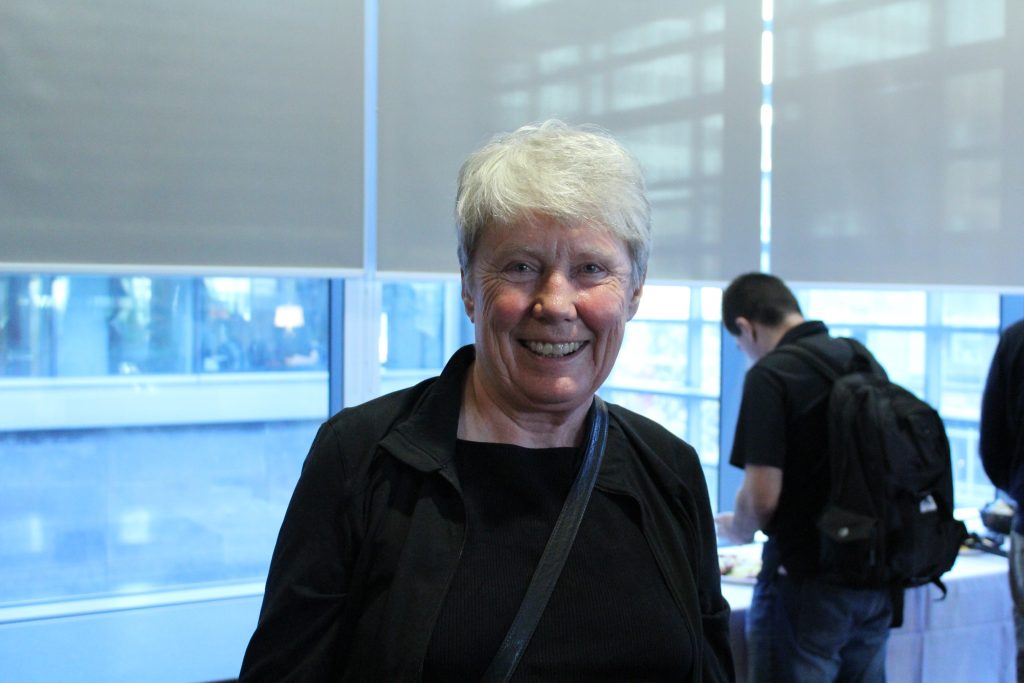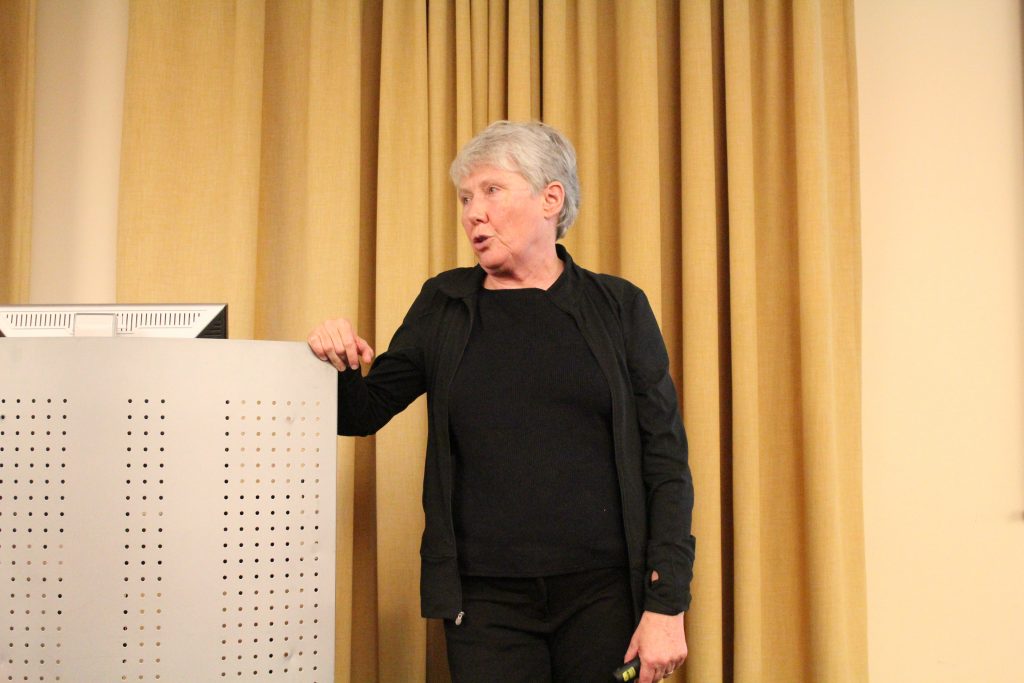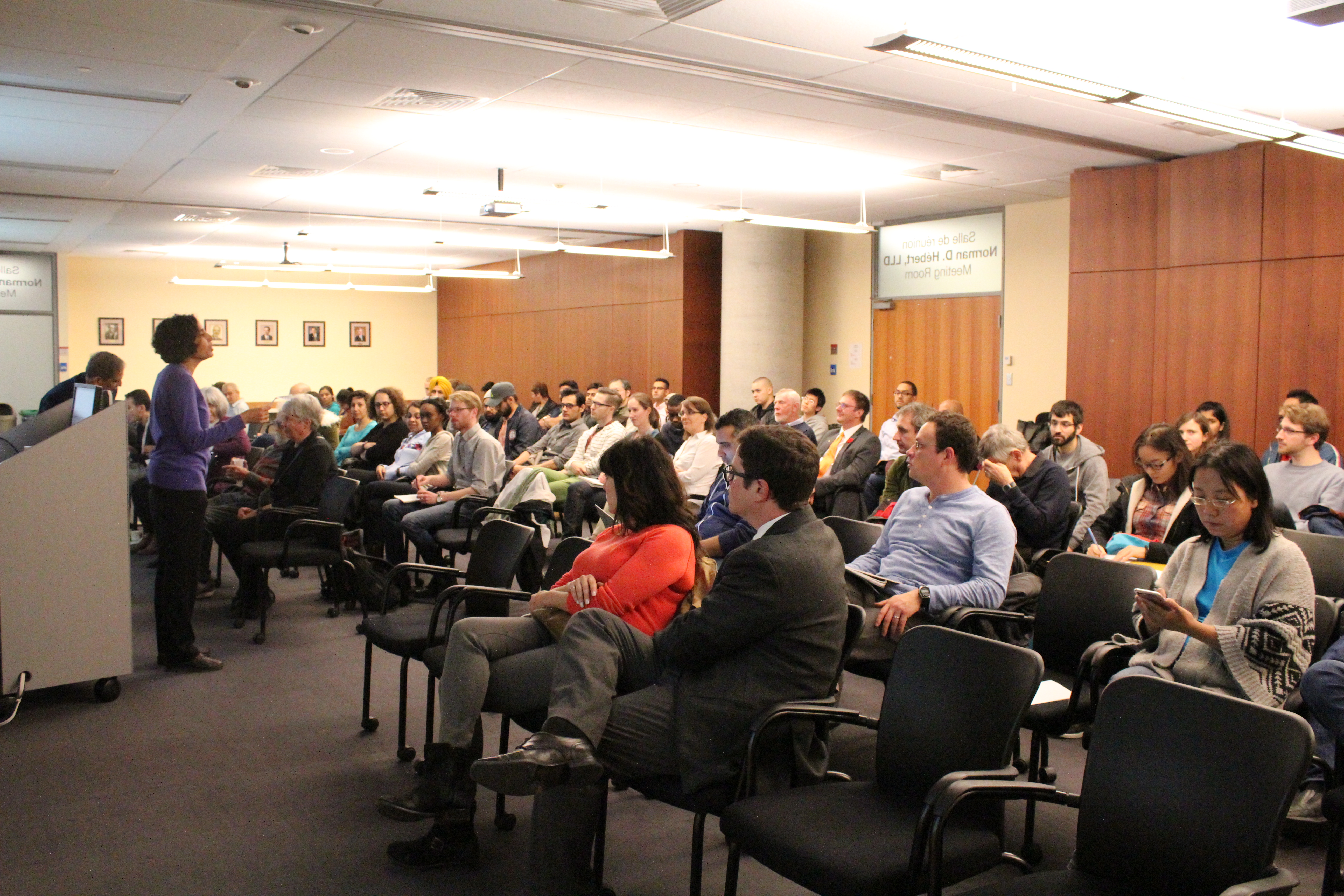President of the Harvey Mudd College discusses women in tech programs and careers
Concordia’s Department of Computer Science and Software Engineering invited Maria Klawe, the president of Harvey Mudd College (HMC) to discuss the lack of women in the tech world, the progress that is already underway and what still needs to be done.

HMC is a private school located in California, dedicated to the study of science, engineering and mathematics. At the lecture on Nov. 7, Klawe discussed the lack of gender diversity in the tech industry and how HMC is finding innovative ways to change that.
According to a 2013 Atlantic article, “We Need More Women in Tech: The Data Proves It,” women’s participation in the tech industry has decreased over the last decade. Similarly, Klawe’s own research found that, more than any other STEM discipline (science, technology, engineering and mathematics), computer science programs in North America have seen women’s enrolment decline from mid-30 per cent in the 80s to approximately 15 per cent today.
In an effort to recruit more students, Concordia offers small amounts of award money to incite top students to enroll into technology programs.
Klawe said there needs to be improvement in the enrollment process for female undergraduate students in computer science and engineering programs worldwide. That being said, she also believes the problem goes beyond school, and into the workforce. First, to successfully recruit female candidates, Klawe proposed that hiring committees be trained to avoid gender biases. “What we all need to accept about ourselves is that we grow up in a culture that makes us more likely to think that nurses are going to be female and engineering and computer scientists will be male,” said Klawe.
According to a 2010 research report from the National Center for Women and Information Technology, authors Catherine Ashcraft and Sarah Plithe found that 56 per cent of women working in the tech industry leave their organizations at the mid-level point of the careers, in other words, after 10 to 20 years. Klawe said this is because of women’s own perceptions that they lack the same advancement opportunities as their male colleagues. Therefore, she said, there should be more effort made to keep these women in the tech industry.
“If we make learning and work environments interesting and supportive, build confidence and community among women and demystify success, women will come, thrive and stay [in tech careers],” said Klawe.
The demand for people graduating with computer science and engineering degrees is higher than Klawe has seen in her lifetime. The jobs within the computer science discipline are flexible and pay well, but Klawe said the most important reason more women are needed in tech careers is because they provide different backgrounds and perspectives. She thinks this would lead to more creativity and better solutions to problems.
In addition to her work with HMC, Klawe is also the co-founder of the Computer Research Association (CRA), which was founded in 1991. CRA’s goal is to find ways to get more women in computer research institutions. The association also developed the Distributed Mentor Project (DMP), which allows female undergraduate students to conduct a research project in their field of interest with the guidance of a female mentor from a university faculty different from their own.
“We need more women in academia because, from research, we know that it is important for young women to see role models, and, often the faculty that they are going to interact with are those role models,” Klawe explained. Indeed, a 2015 Higher Education Statistics Agency report found that, globally, only 22 per cent of university professors are women.
HMC has increased its percentage of female computer science majors from 10 per cent to 40 per cent since Klawe’s arrival at the college in 2006.

The college’s department of computer science revamped its program in 2005, grouping students in computer science introductory classes depending on their prior experience and knowledge in the discipline. This initiative was created in an effort to make female and male students feel like they belong, and can work together on the same level, within the tech industry.
HMC also arranges for first-year undeclared major students to be taken to the annual Grace Hopper Celebration of Women in Computing conference, where 90 per cent of attendees are women. The conference is the world’s largest annual gathering of women from the technology industry. Klawe said this conference is a good way to expose students to successful women from the industry. “[Students] will be inspired,” said Klawe, “and no matter what they major in later on, they will know that there are tons of technical women who have great experiences in their careers.”
While advocates like Klawe strive for more balance between women and men in the tech world, she emphasized that this is not a solo mission for women. “It is not the women that need to fix the imbalance,” she said. Ultimately, Klawe said entire communities need to decide if the representation of women in the tech world should be a priority.




